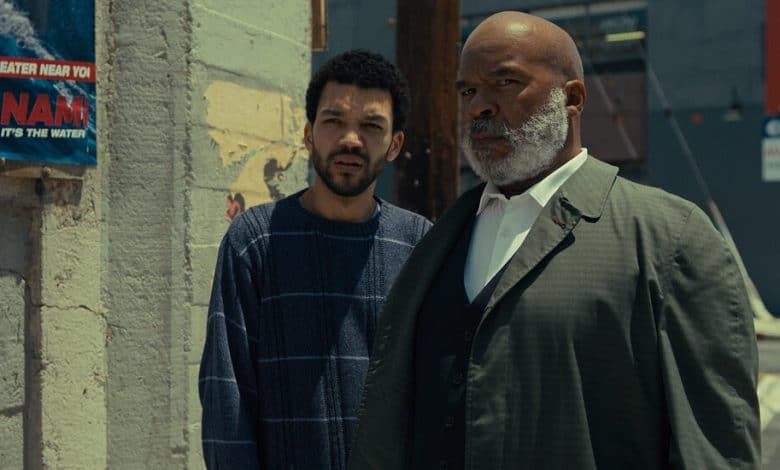‘The American Society of Magical Negroes’ Review: Lampooning an Offensive Cliché

Kobi Libii’s satirical comedy, “The American Society of Magical Negroes,” opens in an art gallery where people are milling about. A young Black man tries to walk through the crowd, constantly apologizing and sidestepping the gallery-goers. He acts as if he feels in the way and out of place. But as we learn when he arrives at his own yarn installation, he’s one of the artists whose work is for sale.
The scene says a lot with a little, hitting comic beats but ending deflatedly thanks to the art dealer’s ruthless reaction to this diffidence. Yet the behavior of the young artist, Aren (the enormously talented Justice Smith), is exactly what catches the eye of a bartender at the show, Roger (David Alan Grier), who hides a secret identity. Cue the title of the film, which turns the movie trope of the “Magical Negro” character into a mission statement: Roger belongs to an elite group tasked with eliminating discomfort for white people and making them feel better about themselves.
Roger recruits Aren, and within moments, they’re helping white people leap their anxieties in a single bound. Libii’s premise rests on the rationale that “the happier they are, the safer we are,” as Roger puts it. When he and Aren pacify a disgruntled white cop by helping him get into a nightclub, it seems clear that the stakes involve the threat of racial violence, though these ideas prove to be a challenge to explore in a film that leans into romantic comedy.
Aren’s big assignment is to go undercover at a tech company and build up a co-worker, Jason (Drew Tarver), who’s feeling down for a couple of reasons. He’s hit a dead end at work, and he’s sweet on his superior, Lizzie (An-Li Bogan), but barely seems to know it. Aren must help Jason realize his dreams while suppressing his own: Aren and Lizzie have already flirted, quite promisingly, in an early meet-cute scene.
Libii’s story underlines the self-negation involved in the trope of the title and ridicules the expectations and constraints forced upon Black people in myriad ways. The American Society of Magical Negroes has a hideout where Aren and other agents are trained on scenarios that echo the selfless-helper plots of “The Green Mile” and “The Legend of Bagger Vance.”
